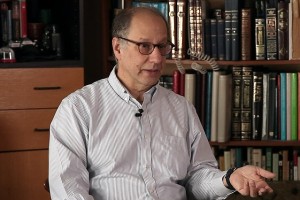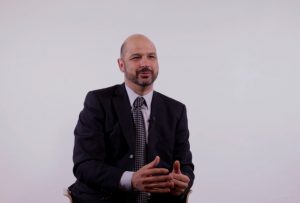Empirical Philosophy of Medicine
On the history of medical research in STS, Dutch hospitals, and Mol's work
At the beginning of “Being in Time” there’s a front piece, that’s a quote from Plato, from the Sophists, and the stranger, the Xenos is speaking, and he says: “You’ve long been aware of what you mean when you say “being”, but those of us, who thought we knew what it meant, are now perplexed”. In many ways this inaugurates the question of the meaning of being for Heidegger. As we know being has been understood as traditionally sensible and intelligible, real and ideal in many different ways: as essence or definition, substratum, etc.
In Aristotle though being comes to have a particular way of being understood, and it’s traditionally understood as substance. Of course, this also has a number of different meanings. It can be interpreted in different ways. Brentano, for example, has four different understandings of Aristotelian substance: accidental, true, potential and actual or the categories. In all of these being is still understood as substance. The argument, however, is that when it comes to what being itself means, the argument is that being is not for Aristotle to be understood as a genius, being is universal, because everything is – I, you, everything in the world is. Yet being is not to be understood as a genius, and Aristotle has a particular argument for this. Namely, that if being was a genius, then it couldn’t be predicated of its proper diferencia. Why? Because you would then need yet another genius that would encompass both the genius and the differentia. Being for Aristotle is a universal for all beings, but not a generic universal.
So, what is it? Aristotle calls it an arche, an original universal. It’s this definition, this understanding of being that in many ways is the guiding understanding of being from the Greeks to modern philosophy. Many people today in fact still follow this understanding of being.
Heidegger argues: “ Yes, Aristotle and Kant are right: being is not a being”. What is it? It’s a universal. Yes, they’re right. What kind of universal? It’s neither essence, nor existence – it’s the universal. Das Transzendenz schlechthin. It’s the transcendental, if you wish. Not as the scholastic’s argued, but the universal transcendence.
What is then the reason why this has never been seen before (as far as I’m concerned)? It’s because the history of philosophy translated Aristotle’s original understanding of being, which he called ousia as “substance”. So we remained in the history of philosophy wedded or loyal to this translation of ousia and couldn’t see that this was actually a mistranslation. The translation should have been “presence”. This is Heidegger’s contribution to the history of being, because he understands that being is presence.
For example, he quotes Goethe: “Over the mountains everything is peaceful – In Gipfel alles ist ruhe”. Everything is peaceful in the mountains s means that peace is in the mountains, peace reigns, peace prevails in the mountains, peace is present in the mountains. That’s what we mean by being.
For Heidegger being is not just presence as it was in Aristotle, but presence and absence. Heidegger’s example: if I say of my friend: “He is not here. I miss him very much”. What I mean is that he is not present, but he is absent and yet he is also somehow present, namely present as absent. In this way Heidegger wants to insist that being is determined as presence and absence. So the universality of being that Aristotle originally uncovered is presence and absence in these two ways of being. Tertium non datur or “there is no third”. But what does Aristotle say?
Aristotle says being and unity imply one another. Why? Because being is implied in beings, not only in unity, but in beings: you and I, everything that is. Being is an implication, being means then precisely neither being just present or absent. An example from Heidegger: a hint. When I give a hint about something, it is to be a hint, it must remain a hint. If I explain, if I explicate the meaning of the hint, of what is hinted, it’s no longer a hint. The issue is to remain with the hint as hinting.
Same with implication. If I’m implying something, I’m precisely not bringing what is implied to presence, although nor am I leaving it simply in absence. Implications are then like hints. This means that in the history of philosophy, like Poe’s “Purloined Letter”, the meaning of being as implication has been staring us in the face. It’s been in full view, even though we never saw it. Being means implying, and that is suspending the understanding of being as presence in absence. Thus, being is not implied, because it’s a universal. Being as a universal because it’s implied. This opens up for us now an entirely new area of ontological research, namely, the investigation or the study of being co-implication.

On the history of medical research in STS, Dutch hospitals, and Mol's work

Harvard Senior Researcher David Weinberger on how filtering on the Internet is organized, and the web of knowl...

Communication scholar Grant Kien on intercontinental ballistic missiles, critical geography, and John Locke